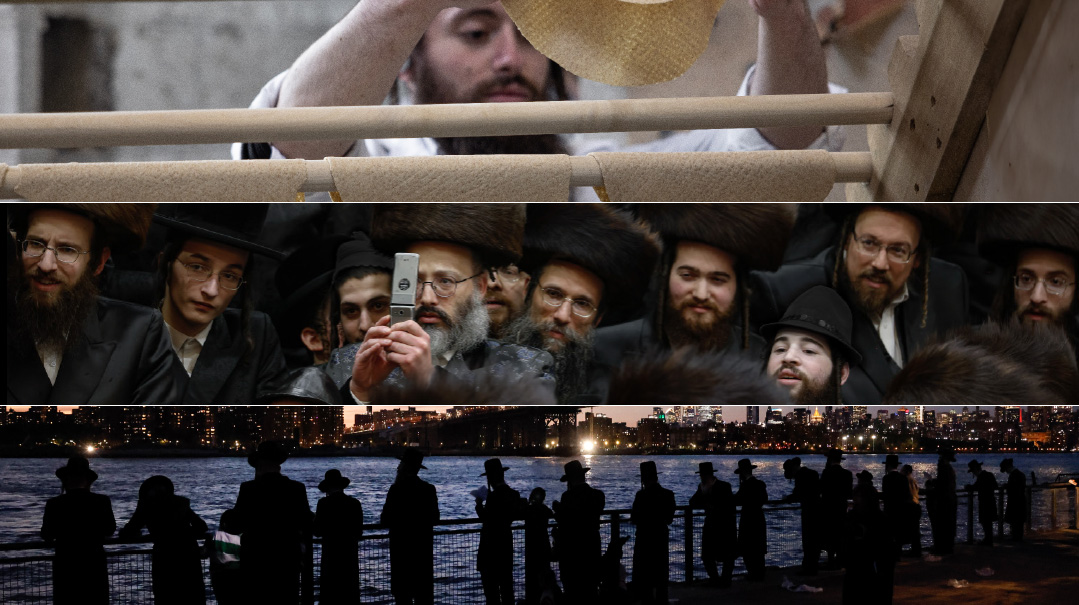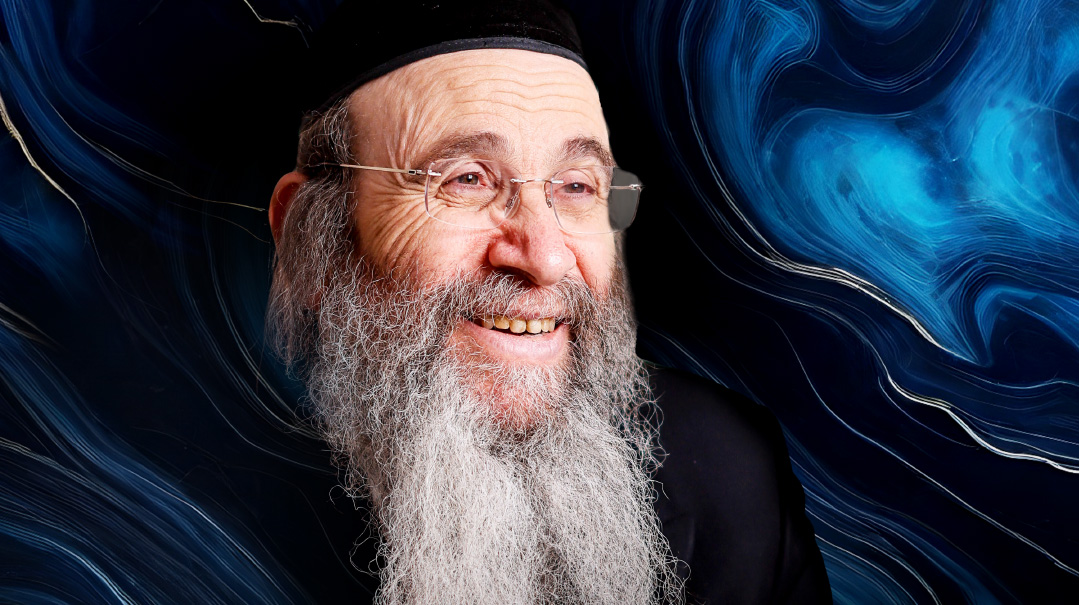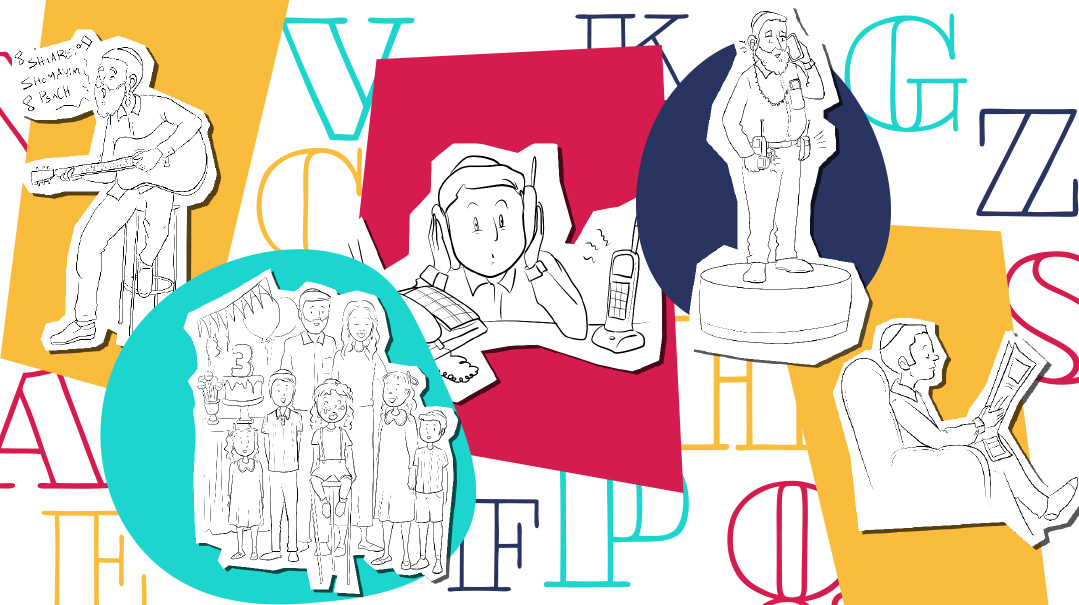Sudden Death Syndrome

Has Putin stamped out all opposition?
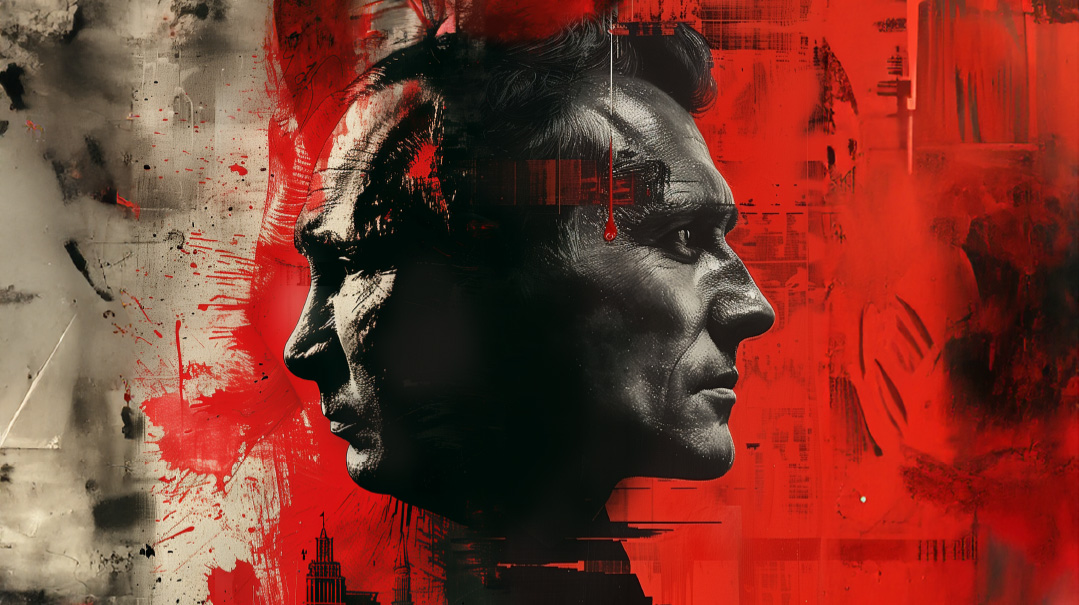
Photos: AP Images
No one was shocked to hear that Alexei Navalny, Vladimir Putin’s charismatic nemesis, collapsed and died in a remote penal colony after yet another stint in solitary confinement. But the questions still remain: Why did Putin see him as a threat? Why did he return to Russia to an almost certain death sentence? And with Navalny out of the picture, does the opposition movement have any chance?
T
he news that came from Russia on Friday afternoon was eminently predictable — but still sent shockwaves around the world. Alexei Navalny, the most prominent opposition leader to arise against Vladimir Putin in recent years, had died in prison.
The official announcement declared that, Navalny, 47, had collapsed and died during his daily walk from “sudden death syndrome,” which can occur for a number of reasons. The world, of course, understands that this is code for political assassination — the latest in a long string of killings that seem to be Putin’s favored method for clearing away his opponents.
Just a day earlier, Navalny was seen joking on a video link with the judge in a Russian court. Wearing a black prison uniform, Navalny appeared to be in a good mood as he said to the judge, “Your Honor, I will send you my account number so you can use your huge salary as a federal judge to ‘warm up’ my personal bank account, because I am running out of money.”
The camera in the court then showed the judge, as well as the other people present, smiling and enjoying Navalny’s wit.
On Wednesday, a day before this appearance, and two days before his death, Navalny posted on X (formerly Twitter) his final tweet: “The Yamal prison decided to break Vladimir’s record of fawning and pleasing the Moscow authorities. They just gave me 15 days in solitary confinement.”
Vladimir is the district where Navalny had been incarcerated for most of the last three years, in Penal Colony Number 2 — until he disappeared for two weeks this past December, only to reappear in the “Polar Wolf” penal colony in Yamalo Nenets Autonomous Okrug, which Navalny nicknamed “Yamal” in his tweet.
This final punishment was the 27th of its kind that Navalny had suffered, and it came just ten days after the previous one had ended. In the past year alone, Navalny spent no less than 308 days in an isolation cell.
The “Polar Wolf” is located just 61 kilometers from the Arctic Circle, in a region where winter temperatures can plummet to -50° Celsius (-58° Fahrenheit). In the isolation room where Navalny spent so much of his time, there was a small window at the top of the wall, which left the room stifling and steaming in the summer and freezing in the fall and winter.
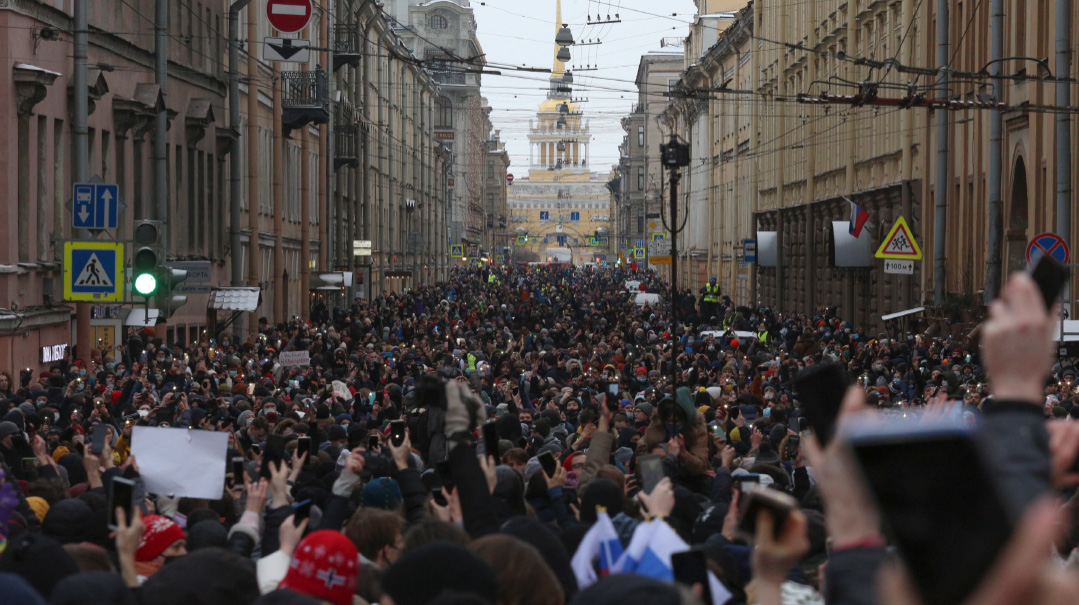
Silent Majority
Why did Putin hate Navalny so much?
It’s commonly accepted that dictators like Putin can sniff out those who pose the greatest threats to their leadership. What power, then, did Navalny hold over the Russian strongman? Various pundits have pointed out that Navalny was gifted with many leadership attributes that Putin lacks — he was tall, charismatic, well-liked, with an aura of confidence and youth that made Putin seem old and irrelevant.
More important, Navalny led a crusade against corruption in the Russian ruling ranks. He dubbed the ruling United Russia party “the party of crooks and thieves,” and the name stuck. And the chief target of his crusade was Vladimir Putin.
Navalny’s chief of staff, Leonid Volkov, who is a Torah-observant Jew operating from Vilna, told Mishpacha in a previous interview that rampant corruption in Russia was the cause that most animated Navalny.
“Corruption is really at the root of what’s going on in Russia,” he said. “It’s a complex part of Russian political history, but to keep it simple, corruption is the fundamental problem that’s the cause of all other problems.”
Navalny systematically compiled information on Putin’s corruption and released it to the Russian public in a series of videos that gained acclaim.
Perhaps the most famous of the videos features an aerial view of a massive palace on the shores of the Black Sea. The palace, one of Putin’s vacation residences, sprawls across an estate larger than a city. The video quickly went viral after it was posted — a sign, said Volkov, that Putin’s support was waning and Navalny’s message was getting across.
“We are a political movement representing the silent majority,” Volkov told Mishpacha. “How do we know this? Putin’s popularity is now below 50% in Russia. The video we released a few days ago about Putin’s presidential palace got over 80 million views on YouTube — that’s half the Russian population.”
It was clear to Volkov — and Navalny — that overthrowing Putin would take courage, resources, and time. Not only that, he knew he’d have to win over the Russian elites in order to succeed.
“I don’t see a clear scenario of success,” Volkov admitted in 2021, “but neither is there a clear scenario for Putin to prevail, because the economy and his approval ratings are both down.”
Volkov claimed then that economic pressure on the assets of the Russian elite could be effective in undermining Putin, to an extent. The war and the sanctions that followed prove that he was right. Putin has certainly been weakened by the economic blows he’s suffered.
What they may not have realized is that a wounded bear is even more dangerous. And Navalny’s continued instigation of the regime — even from prison, where he posted to various social media channels and continue poking sardonic fun at the authorities — must have inflamed Putin.
Unexpected Return
This wasn’t Putin’s first attempt to kill Navalny. In August 2020, Navalny was poisoned before embarking on an domestic flight within Russia, en route from Tomsk to Moscow. After international outcry, Navalny was transferred to Berlin for treatment, where it became clear that he’d been poisoned by the Novichuk nerve gas, Putin’s favored weapon. After a long round of treatment, Navalny came back to life.
One of the first things he did after regaining his strength was to uncover evidence of the poisoning. In a brilliant operation, Navalny, posing as an FSB official, phoned an agent in the special unit that engineered his poisoning. He recorded his conversation with the agent, who was sure he was talking to a superior investigating the “utter failure” of the poisoning. The agent spoke at length about how the poison was concealed in Navalny’s undergarments. The 45-minute conversation proved that Putin was indeed behind Navalny’s poisoning.
About a month after that conversation, four months after the poisoning, Navalny decided to return to Russia. He landed on January 17, 2021, and was arrested immediately upon his arrival, on charges of embezzlement. Protests across Russia against his incarceration led to the arrests of thousands of demonstrators. His punishment was extended every so often, and recently was set at a total of 30 years. It was clear to him that as long as Putin was alive and in power, he would never leave prison.
Many around the world wondered why he decided to return directly to the lion’s den. Wasn’t it certain suicide?
Leonid Volkov said Navalny had been very clear-eyed about returning.
“The day he woke up from his coma in Berlin, he decided to come back to his home,” Volkov said. “That’s where he belongs, and it’s normal to go home. We considered all scenarios before he boarded the flight, and he had a strong feeling that he was doing the right thing.”
Even though they knew of Putin’s murderous proclivities, Volkov was sure that the chances of Navalny being assassinated were low.
“In Russia, anything can happen, but I can’t imagine that Putin would be so crazy as to order Navalny killed in prison,” he said in the 2021 interview. “I think their plan at this point is to lock him up for many years.”
Navalny was in fact fully aware that he’d be arrested and sentenced to a very long prison term. He was mentally prepared for that, however, and planned to use his time behind bars building his intellectual tools for the future.
Yevgenia Albats, a close friend and ally, told Politico that Navalny read voraciously, and compiled a reading list for his expected years in prison. He was particularly interested in biographies of American leaders, though he also read the British Guardian, London Times, and Economist. He seemed to be consciously preparing for a future leadership role.
“He looked at his jail sentence as a time to educate himself, like the Russian revolutionaries did during the czarist era,” Albats said.
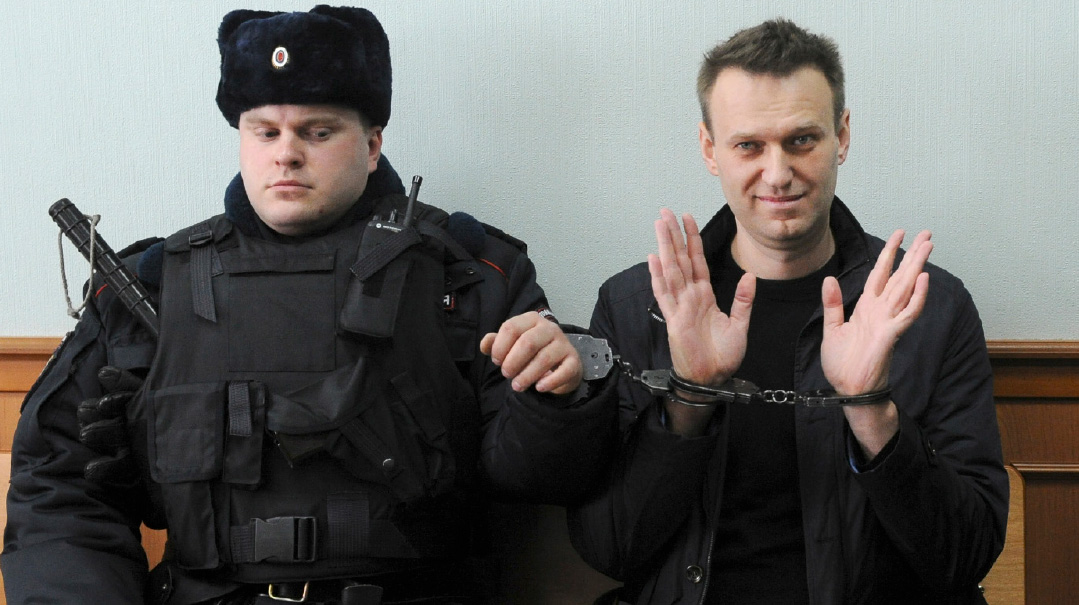
Everyone Is Afraid
Now that he is no longer alive, does his movement have any hope of surviving? His wife Yulia has already made several public appearances and an impassioned address on social media, trying to keep the momentum going. But Tzvi Magen, formerly Israel’s ambassador to Russia and Ukraine and leader of the Netiv organization, and a senior researcher (emeritus) for the Institute for National Security Research, isn’t very hopeful.
“In Russia, there are three types of opposition,” he explains. “There are regime puppets who are elected to Parliament. They have parties, and you can call them ‘the opposition,’ but all their activities are coordinated with the regime.
“Then there is opposition within the regime — senior government officials squabbling with one another. It’s a real thing that exists, and they have disagreements about what’s going on.
“Those are the only two types of opposition that can survive. The third type — true outsiders trying to take down the regime — are eliminated. Anyone who tries to organize and to speak out will find themselves suffering from ‘health problems.’ ”
Magen is alluding to the poisonings and the strange epidemic of “falling from windows” that befell anyone who dared speak out against the Putin regime.
Navalny’s allies claimed that he’d won tens of millions of supporters. Now that he’s dead, there have been only muted shows of support for him. So where are all those masses of followers?
“There are groups with anti-establishment or anti-Putin sentiments, if you want to call it that,” Magen explains. “During the last two years, especially since the war in Ukraine began, any expression not supportive of the government has been suppressed. There were demonstrations, but they were suppressed, and thousands of people were arrested. And that’s why everyone is afraid.
“Perhaps they would rejoice quietly, privately, at home, if change were to come,” he says, “but you won’t see mass expressions of defiance in the public square of Russia today.”
Navalny’s allies are currently pointing an accusing finger at the West, which they claim could have and should have bailed him out. But Magen doesn’t think there is much they could have done.
“You must understand that in Russia, there was a sentiment that Navalny was being manipulated by the West, because they supported him. Of course, that compounded the problem. Realistically speaking, what could the West have done? Could they have gotten involved every time a Russian voice was silenced?”
Magen also doubts whether the shock and dismay at Navalny’s death will galvanize any meaningful opposition. “I personally feel that the regime will get away with it,” he says. “This isn’t the first time an opposition leader has been eliminated, and Putin will get away with it this time as well. Few Russians will demonstrate [against Putin] spontaneously. And those who do — it will end badly for them.”
This doesn’t mean, Magen qualifies, that Navalny’s battle served no purpose.
“It had significance because his campaign spoke to many people and many people were ready, if conditions had been ripe, to support him. He did achieve something, and there is good reason that the regime was afraid of him. He was not just another puppet controlled by foreign entities. He was a personality worthy of support, and as such, he was seen as dangerous.”
Why Now?
Why did Putin make his move now? Many point to the fact that it happened four weeks ahead of the election in Russia. In her interview with Politico, Yevgenia Albats claims the murder was meant to make the election easy for Putin.
“Part of the reason why they did it was precisely the upcoming electoral ‘procedures,’ ” she said. “I refuse to call what we have ‘elections’ because there are no elections. ‘Election’ presupposes that you’re choosing between different candidates, but that’s not the case. There is just really one candidate. Everybody else already announced that they’re not going to debate or say anything against Putin.”
“We don’t really know what is happening in Russia,” Magen cautions, “and we don’t understand that this is the end of any hope for democracy there, at least for the foreseeable future. Right now, Putin needs to emerge from this war in peace, and if he loses the war, his friends will behead him. And there’s an argument in diplomatic circles that for Putin to survive politically — and I remind you, this happens in other countries — he has to get Russia out of the Ukraine war safely.”
Will Russia become more liberal in a post-Putin age? Or is the national psyche simply too autocratic for Western-style liberalism?
“It depends who takes the reins of power,” Magen says. “If one of the formal opposition parties is able to form a coalition and take power, I don’t discount concessions on all kinds of radical conceptions that Putin has, which could lead to the war ending, and other positive outcomes.
“On the other hand, we have to remember that most Russians feel, rightfully so, that there is Western pressure on their country. As far as they are concerned, they went out to war against NATO, because NATO is threatening them with spreading further east. Russia feels pressured — and it wants to survive and fight.”
As of press time, Navalny’s whereabouts are still unknown. Lyudmila, his 69-year-old mother, spent the whole weekend traveling to the penal colony in subzero weather, accompanied by her son’s lawyer, to retrieve his body.
Kira Yarmysh, Navalny’s longtime spokeswoman, said that his mother received an official death certificate stating that Navalny died on Friday at 14:17 local time. But the prison morgue was closed, and Alexei’s body was not released. The authorities insist that it will not be handed over until the investigation into his death is completed, even though they claim there is no suspicion of foul play.
“Alexei’s mother and his lawyers arrived at the morgue early in the morning,” Yarmysh reported on Monday. “They were not allowed to go in. One of the lawyers was literally pushed out. When the staff was asked if Alexei’s body was there, they did not answer.”
An hour later, she added that “the investigative committee informed the mother and the lawyers that the investigation of the death of Navalny has been extended. They don’t say how long it will take. The cause of death is still ‘unknown.’ They lie, buy time for themselves, and do not even hide it.”
Upon his death, Yarmysh said, “Alexei did not die — he was murdered.” She emphasized: “We have lost our leader, but we haven’t lost our ideas or our faiths.”
Time will tell if the righteous anger of Navalny’s allies can sustain its fire in the long Russian winter of power politics, deception, and sudden mysterious deaths.
(Originally featured in Mishpacha, Issue 1000)
Oops! We could not locate your form.




